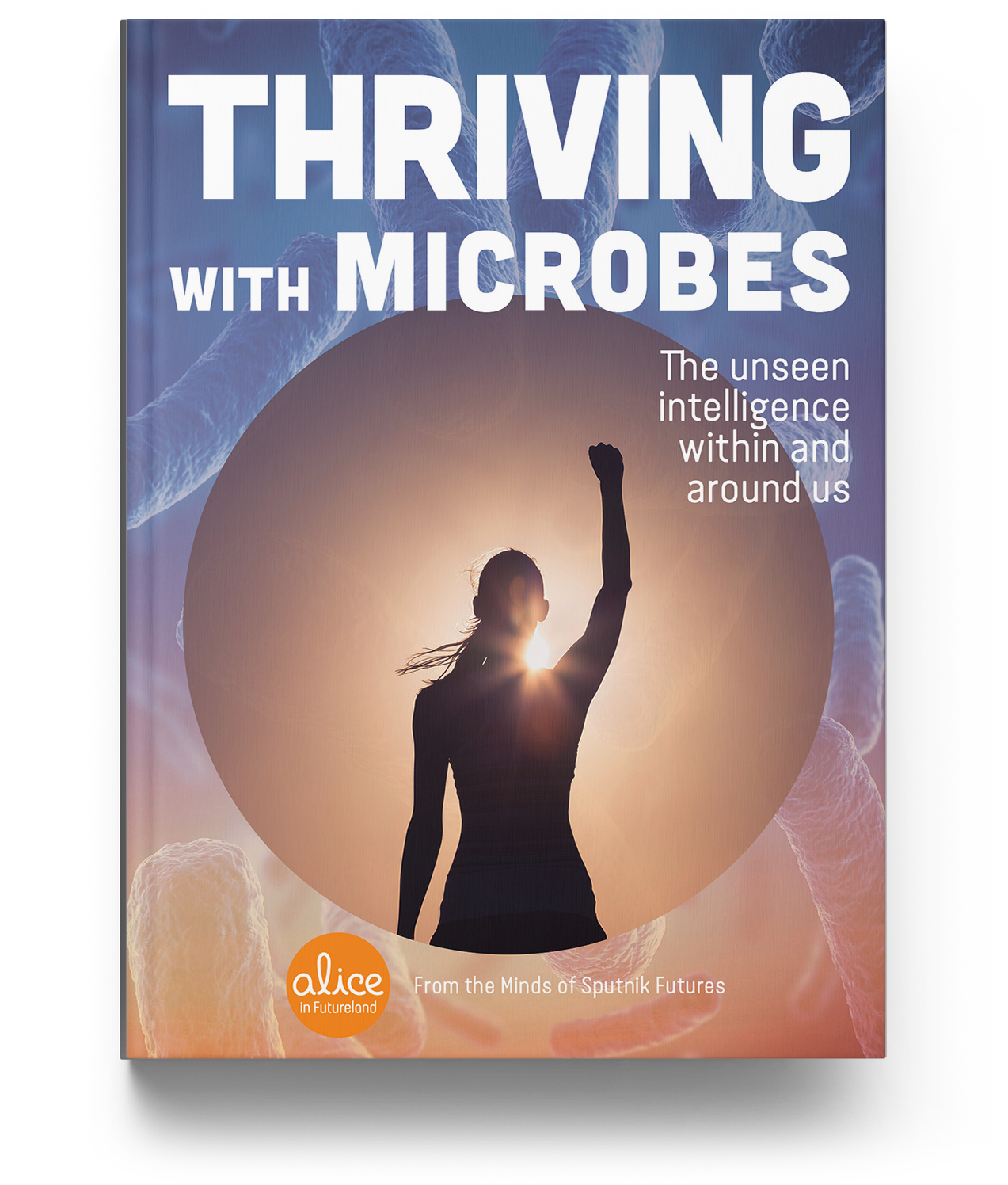Thriving with Microbes
Let’s face it, microbes rule the world! Bacteria, fungi, archaea, protozoa, algae, even viruses—these microorganisms may go unseen, but the impact they have on our lives is unmistakable. Breakthroughs in our understanding of microbes are shaping the frontier of medicine and health, technology, environmentalism, wellness, architecture, and even space
travel. Microbes are talking to us, and we are learning to speak to them in turn.
For example, did you know:
That the mind and the gut talk to each other?
That your personality may be shaped by your microbiome?
That a lack of biodiversity can make you sick?
That microbes can reverse climate change and reduce plastic waste?
That our first microbes came from the universe, and we are taking our microorganisms back to space?
With expert voices, bold discoveries, and engaging visuals, Thriving with Microbes is a captivating guide to the vibrant microbial world we inhabit, how it is shaping our individuality, and the miraculous future these microorganisms are showing us.
See what others have to say on Goodreads
What’s Inside
Why Bacteria Get A Bad Rap
Why a book on microbes? And why now, especially in a time when we are still in the shadow of the great 2020 COVID-19 pandemic? The short answer is this: you and I, and every pet and animal and plant are made of microbes. Tens of trillions of them, and still counting. And humanity has had a love/hate relationship with microbes.
We can talk to bacteria, and bacteria can talk to us!
While we are still learning the intricacies of quorum sensing, scientists have made progress in synthetically producing the compounds bacteria use to communicate. It's better than cracking the code—we are not just listening in on their conversations, we can engage in crosstalk with bacteria, talking to them, and having them talk to us.
Welcome to your microbiome!
Trillions of microbes affect every stage of our life—from birth to old age. Welcome to your microbiome! And, now that you know that your body contains many more microbes (including bacteria and viruses) than human cells, what are you going to do about it? The best hope in decoding the microbiome will lie in data, data and more data. In the next five years we will see exciting findings from mice studies translate to human trials. So, let’s follow the data to see what we can do today, and explore the frontier to see what we will do in the near-to-far-future to keep our microbiome in good shape.





